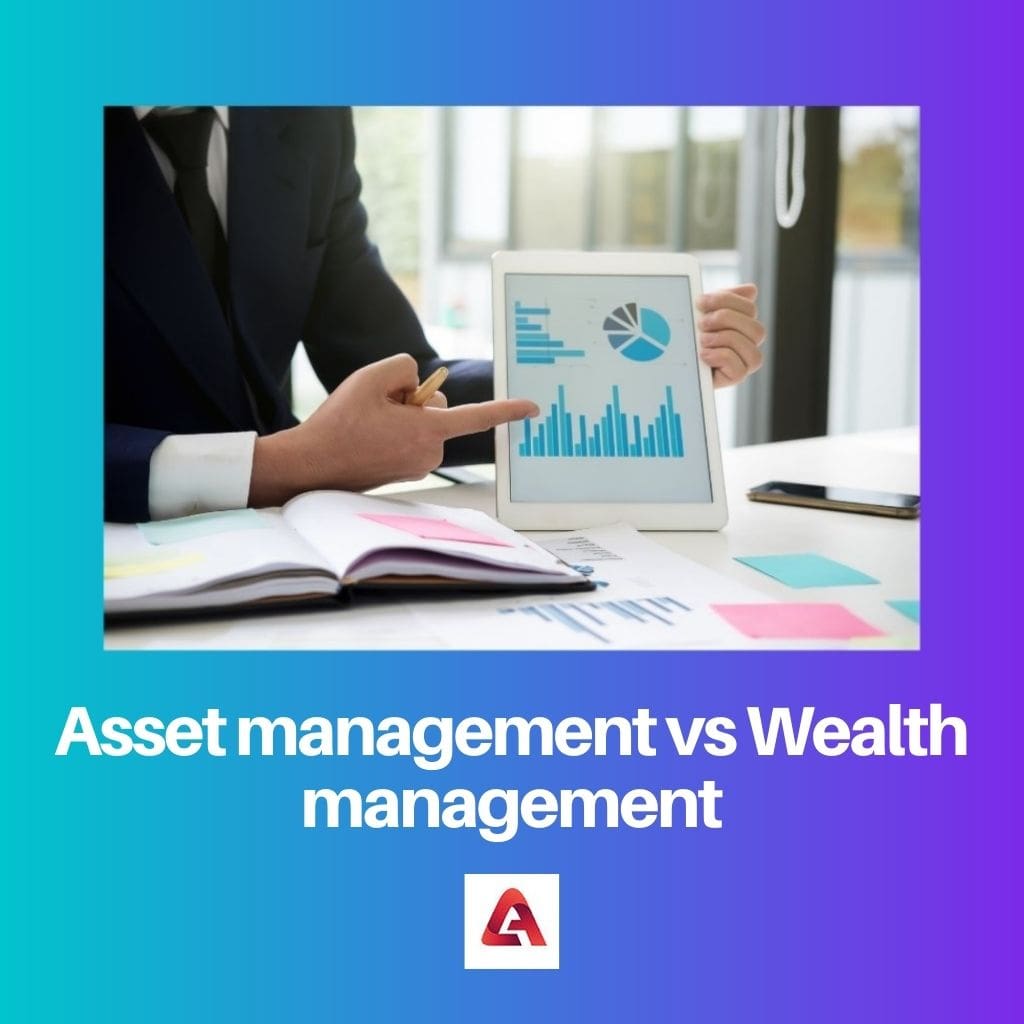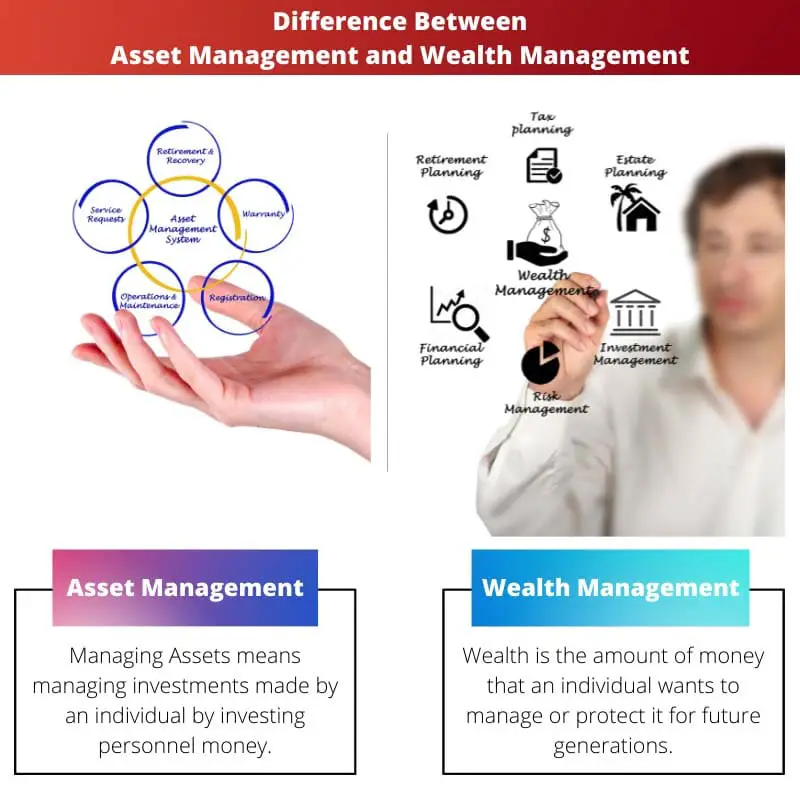Asset Management is managing investments made in terms of money with a focus on getting higher returns and gaining profit is called Asset Management. To put it in simple words, an Asset puts cash in your pocket even when you are not working.
Assets can range from various commodities like real estate, which can be commercial or residential, both being good assets; investing in stocks and shares of any company and gaining profit from it can also be called an Asset. Investing in mutual bonds can also be considered a paper asset. Still, it is necessary to manage all the Assets an individual has to maximize their investments and expect higher returns.
People also hire personnel accountants and managers to look after their investments so that they can be kept informed and take necessary measures when required.
Wealth Management is managing the amount of money that has been earned and maximizing it by various processes and methods so that it can be converted into generational wealth from which future generations can also benefit.
Managing wealth can be frustrating and stressful as it includes paying less tax to the government, home insurance, education planning, and pre-planning on the distribution of wealth among family members as generational wealth. Not spending away a fortune on non-essential pleasures and items is also considered intelligent Wealth Management.
Key Takeaways
- Asset management involves the professional management of a client’s investments, such as stocks, bonds, and real estate, to maximize returns and minimize risk; wealth management is a more comprehensive approach to managing a client’s financial affairs, including investment management, financial planning, tax planning, estate planning, and other financial services.
- Asset management primarily focuses on investment management and portfolio optimization, while wealth management encompasses a wider range of financial services tailored to the client’s financial situation and goals.
- Both asset management and wealth management are financial services aimed at helping clients grow and preserve their wealth. Still, asset management is more narrowly focused on investment strategies, whereas wealth management provides a holistic approach to managing a client’s financial life.
Asset Management vs. Wealth Management
Asset management refers to the professional management of a client’s financial assets with the goal of maximizing investment returns. Wealth management encompasses a broader range of financial services, including investment management, financial planning, and other wealth-related services.

Comparison Table
| Parameter of Comparison | Asset Management | Wealth Management |
|---|---|---|
| Concept | Managing Assets means managing investments made by an individual by investing personnel money. Asset gives a high return on your investment. | Wealth is the amount of money an individual already has and wants to manage or protect for future generations to benefit. |
| Positives | Assets produce income which is very beneficial because this type of income is instantaneous even if a person is not working. | Wealth Management helps family members to thrive by giving access to generational wealth, which can help in the overall function of the family. |
| Negatives | Managing Assets can sometimes become hectic and require much more capital to be profitable, which can be stressful. | Managing and protecting wealth is very difficult and requires complex processes like paying less tax legally and other issues. |
| Capital Involved | Assets require at least 5 times more money than the return on investment initially, but more capital could also be required. | Wealth can be any amount the person has earned in his lifetime, either by job or business or by investing, and it now needs to be managed. |
| Risks Involved | Assets are of many types, like stocks of any organization or real estate, either commercial or residential, which involves enormous capital, and every help may not give returns. | Managing and protecting Wealth could involve paying less in taxes which, if not done legally, could be counted as tax evasion, which is a fraud and has high consequences. |
What is Asset Management?
We all have heard a phrase about money: “It takes money to make money.” This is very true in the case of Assets. Assets are investments made by people to secure high gains or high returns on their money.
Assets are of various types like real estate, which could be commercial real estate or residential real estate, stocks of different organizations on enterprises listed on the share market, ETFs, and mutual bonds; people even invest in businesses or start-ups, which, if they become successful gives the highest return on investment.
Many people consider their home an Asset which is not in reality because it takes money out of your pocket instead of putting money in your pocket. Managing Assets can sometimes be stressful and hectic.

What is Wealth Management?
Wealth is the amount of money a person has accumulated up to the present time. Wealth requires proper management. If not, the person can inquire about the loss of wealth due to excessive spending or poor management.
Saved money is dead money because of factors like inflation and rising amounts of consumer goods.
So, it is better to manage wealth properly and maximize it. Managing wealth can become generational wealth.
Suppose a person tries to avoid paying taxes legally. In that case, they can face severe consequences, so wealth management should be planned appropriately and cautiously to protect and maximize wealth.

Main Differences Between Asset Management and Wealth Management
- Asset Management includes managing investments in paper-like stocks, bonds, mutual funds, or physical property like real estate.
- Wealth Management includes managing wealth by paying less tax legally or creating an LLC corporation.
- Generational wealth can be created by managing existing wealth.
- By having more Assets, more financial stability can be created.
- Assets require initial capital, while wealth is capital to be managed.

- https://journals.sagepub.com/doi/abs/10.1111/j.1741-6248.1992.00181.x
- https://jpm.pm-research.com/content/36/1/100.abstract
